Phonetics understanding Worksheets for Kids
5 filtered results
-
From - To
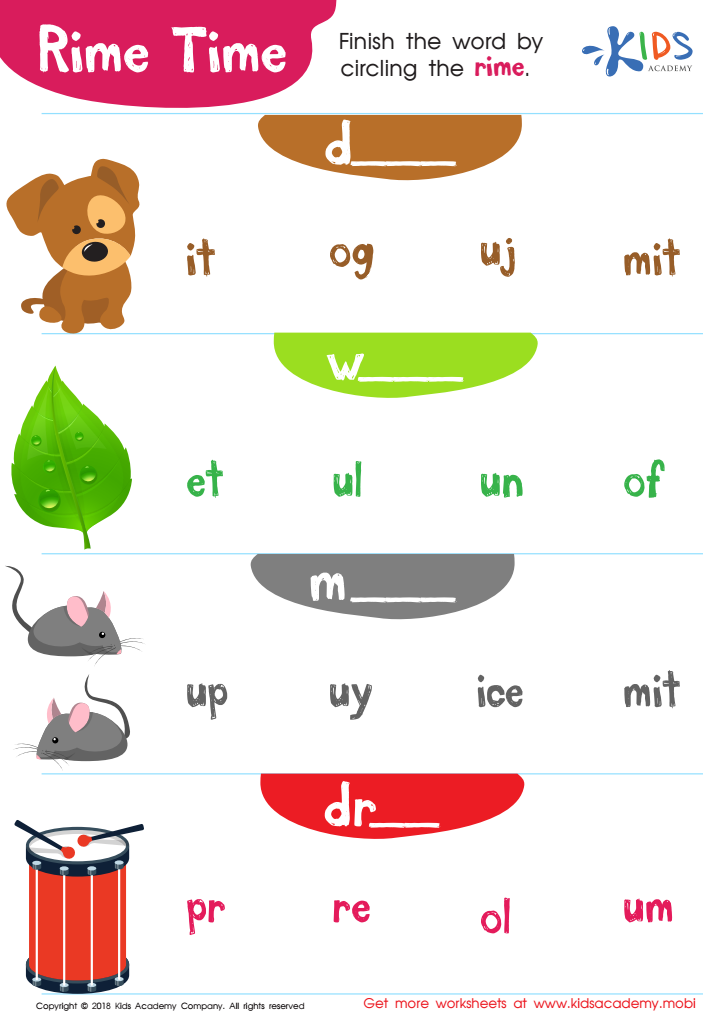

Rime Time Worksheet
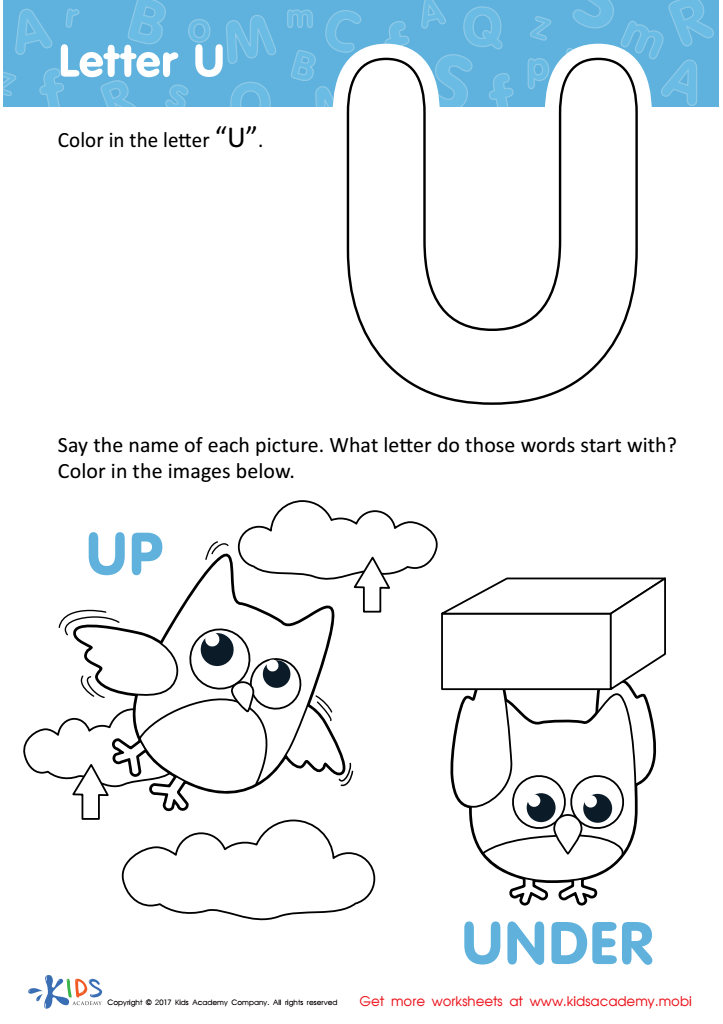

Letter U Coloring Sheet
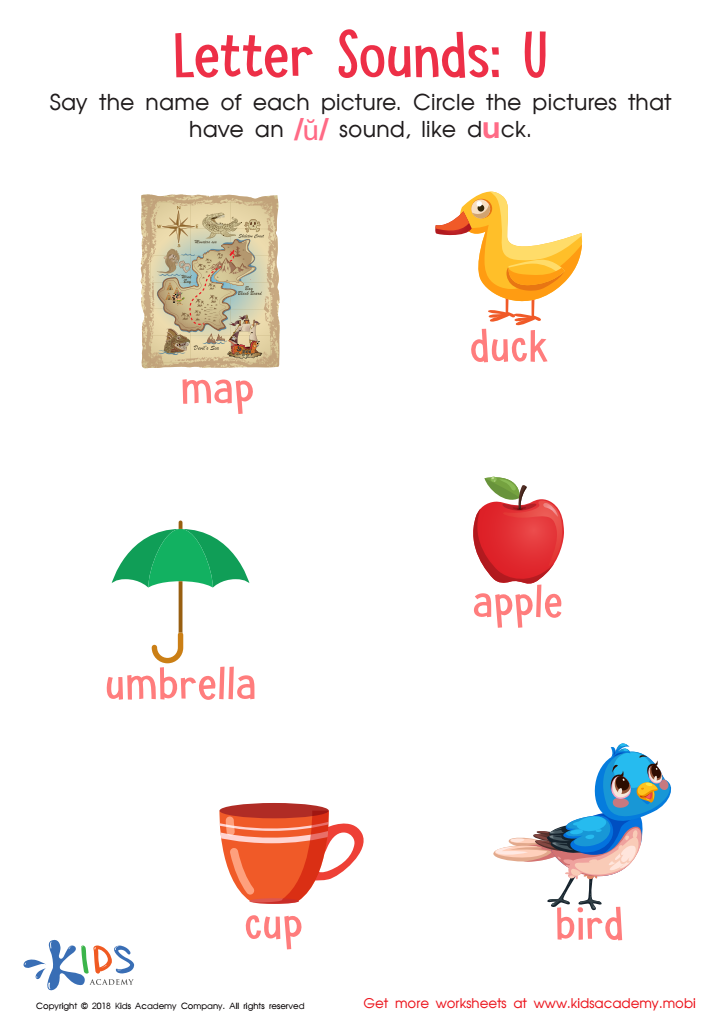

Letter U Sounds Worksheet
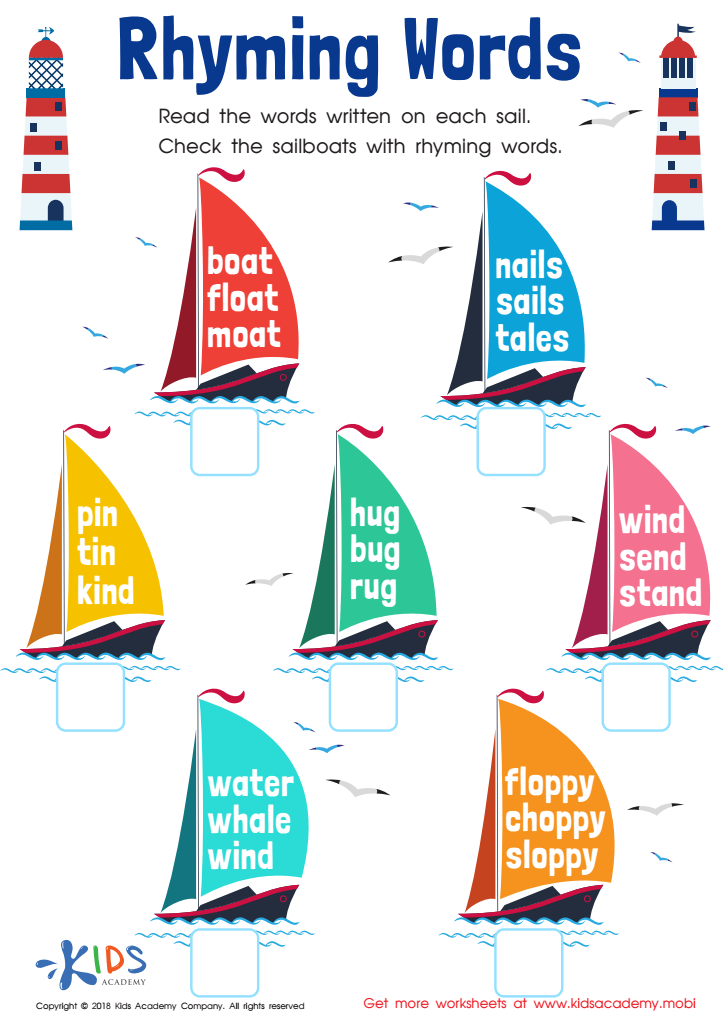

Rhyming Words Worksheet
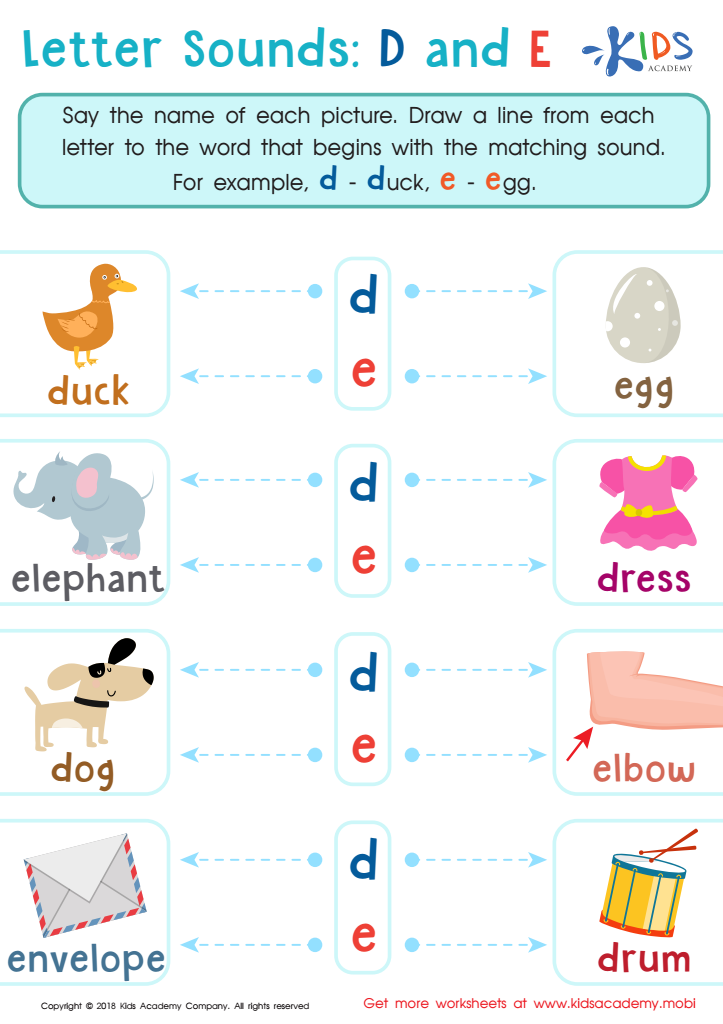

Letter D and E Sounds Worksheet
Question/Answer
Why is the Phonetics understanding skill important for Kindergarten students?
Understanding phonetics is crucial for Kindergarten students as it lays the foundation for reading and writing skills. By recognizing and producing the sounds of letters and letter combinations, children learn to decode words, enhancing their ability to read fluently and spell accurately. This essential skill also supports vocabulary development and comprehension, crucial for academic success.
How to test a Kindergarten student’s Phonetics understanding skills?
To test a Kindergarten student's Phonetics understanding skills, use simple, engaging assessments such as asking them to identify and produce the sounds of different letters, match letters to their corresponding sounds, blend sounds to form simple words, and segment words into individual sounds. These activities can effectively gauge their ability to recognize, understand, and manipulate phonetic elements.
How does the mastery of the Phonetics understanding skill affect a student's performance at an early age?
Mastery of phonetics at an early age significantly improves a student's reading and writing abilities. It enhances their ability to decode words, leading to better reading fluency, comprehension, and spelling skills. Early phonetic skills also build a strong foundation for future literacy development, contributing positively to overall academic performance.
 Assign to the classroom
Assign to the classroom












